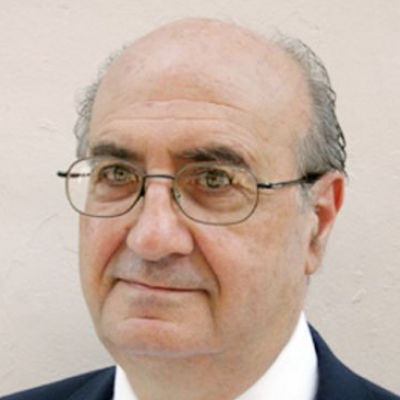Iran, Let the AIDS Doctors Go Free
Is Iran ready to enter the international arena as a respected partner in protecting human rights?
January 13, 2009
Cyrus the Great, the first Achaemenid Emperor and founder of Persia, would be ashamed by the actions of the Iranian government regarding two Iranian doctors, both experts on AIDS.
The detention of the two physicians in June 2008 — in a flagrant abuse of their basic human rights — would have been roundly condemned by the Emperor, who declared the first Charter of Human Rights known to mankind.
Academic institutions and human rights activists worldwide have protested the detention of the two brothers, Dr. Arash Alaei and Dr. Kamiar Alaei, who were convicted on spurious charges that they were communicating with an “enemy government.”
Among over 3,000 people and organizations worldwide protesting their detention are Physicians for Human Rights, Professor Michel Kazatchkine, executive director of the Global Fund, and Dr. Paul Farmer, an AIDS expert and co-founder of Partners in Health who is doing valuable public health work in Haiti, one of the countries most punished by the AIDS pandemic.
The doctors' detention for seven months violates the tenets of the Iranian penal code. According to their lawyer Masoud Shafie, articles 30-34 of the Code of Penal Procedure of the Islamic Republic of Iran allow for detentions, but require that the judge investigating the case issue detention orders for one month at a time and for no longer than four months.
Dr. Kamiar Alaei is a doctoral candidate at the State University of New York (SUNY) School of Public Health in Albany, New York. He planned to resume his studies there this fall. In 2007, he received a Master of Science degree in Population and International Health from the Harvard School of Public Health in Boston.
His brother Dr. Arash Alaei is the former director of the International Education and Research Cooperation of the Iranian National Research Institute of Tuberculosis and Lung Disease.
For the past 10 years, the brothers have been carrying out HIV/AIDS treatment and prevention activities, particularly aimed at reducing the harmful effects of the infection among injecting drug users.
After finishing their medical training, the Alaei brothers have been working on AIDS research in Iran. They contributed to the creation of Iran's HIV/AIDS prison program, widely considered to be among the best in the region.
Their work in Iran in the HIV/AIDS and public health arena has earned the country recognition as a model of best practice by the World Health Organization (WHO). This is of particular importance because generally there is no effective response to the prison population's needs in almost any country.
In 2004, the Alaei brothers were the main organizers of a tri-national meeting in Tehran to discuss harm reduction strategies and substitution treatments for drug abuse patients in Iran, Tajikistan and Afghanistan. According to medical experts who participated in that meeting, Iran's programs were inspiring role models for other countries in the region.
“Iran's HIV/AIDS program has been acclaimed internationally for seriously addressing the AIDS epidemic… The detention without charges of the Alaei brothers has a chilling effect on all those efforts,” declared Joe Amon, HIV/AIDS program director at Human Rights Watch.
The doctors have expanded their activities into other countries, and have held training workshops for Afghan and Tajik health professionals.
As part of their work on HIV/AIDS, the Alaei brothers have traveled extensively outside Iran, including to the United States, both to participate in professional events and to share their country's experience in fighting the epidemic. Their work has always paid particular attention to the most vulnerable patients in their country. To detain them for communicating with an “enemy government” is nothing short of absurd.
Because Iran is party to the International Covenant on Civil and Political Rights, it has strict legal obligations not to conduct arbitrary arrests or detention — and to afford due process to anyone detained. Those obligations have been violated in the case of the Alaei brothers.
The Government of Iran is eager for international recognition as a valid partner in the international arena. Respecting human rights and freeing the detained physicians would contribute to making the world believe that Iran deserves such a place.
Editor’s Note: I met Dr. Kamiar Alaei at a conference organized by the International Center for Journalists in April of 2008. Kamiar is an outburst of humanity, indomitable civic spirit and personal courage. He is a walking advertisement for all the cultural strands that make Persian culture so intriguing. For him and his brother to be put on trial by Iran is more than disillusioning. It is a betrayal of Iran’s own civilizational roots and achievements. — Stephan Richter
Takeaways
For Iran to detain the Alaei brothers for communicating with an "enemy government" is nothing short of absurd.
Iran is eager for international recognition. Respecting human rights and freeing the detained physicians would make the world believe that Iran deserves such validation.
"Iran's HIV/AIDS program has been acclaimed internationally for seriously addressing the AIDS epidemic…The detention of the Alaei brothers has a chilling effect on all those efforts." <br><br>(Joe Amon, Human Rights Watch)
Read previous
Globalization and Cultural Convergence
January 12, 2009
